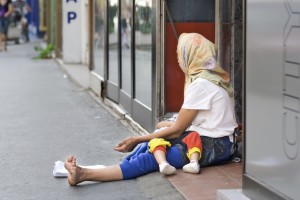 This week in Dusseldorf, Germany, we organised in partnership with our member Diakonie Duesseldorf a meeting for members on diaconia in urban areas. The 15 participants came from various member organisations across Europe, discussed challenges and projects of Diaconia in urban areas on the basis of their experiences as social care providers in European cities and of the input from Dr Dirk Geldof, lecturer at the University of Antwerp on the concept of “superdiversity”.
This week in Dusseldorf, Germany, we organised in partnership with our member Diakonie Duesseldorf a meeting for members on diaconia in urban areas. The 15 participants came from various member organisations across Europe, discussed challenges and projects of Diaconia in urban areas on the basis of their experiences as social care providers in European cities and of the input from Dr Dirk Geldof, lecturer at the University of Antwerp on the concept of “superdiversity”.
The question of which challenges arise for social service providers in cities and what kind of services the member organisations implement to address these challenges were at the heart of the discussion. In addition to the rise of poverty, cities are also challenged by growing diversity in a globalised world and a Europe free of internal borders. Against this background, participants acknowledged that the profiles of people in need living in cities have evolved: not only jobless people face difficulties in accessing basic needs like housing for example, but more and more poor workers also do; and not only nationals fall in destitution, more and more destitute people in Europe have a migrant background, whether they be from another European country or from outside of Europe.
One example of the outstanding initiatives presented and visited during these two days was a “Social Shop”, opened to everyone, which hires people with disabilities and sells second-hand clothes and basic products to marginalised people at a cheaper price than for the rest of the customers. This way, poor are not stigmatised as people from all social and economic backgrounds do their shopping in the same place and those with little access to the labour market like people with disabilities can benefit from a quality job. Other examples included an integrated service for homeless people, language and active citizenship courses for refugees and training programs to help marginalised people to find a way back to the job market.
These few examples show that diaconal social services are responsive to new social challenges, and let us hope that all these initiatives put together, supported by national and European advocacy for social justice, can in turn shape our cities’ future!
Have a good weekend,
Eurodiaconia Secretariat